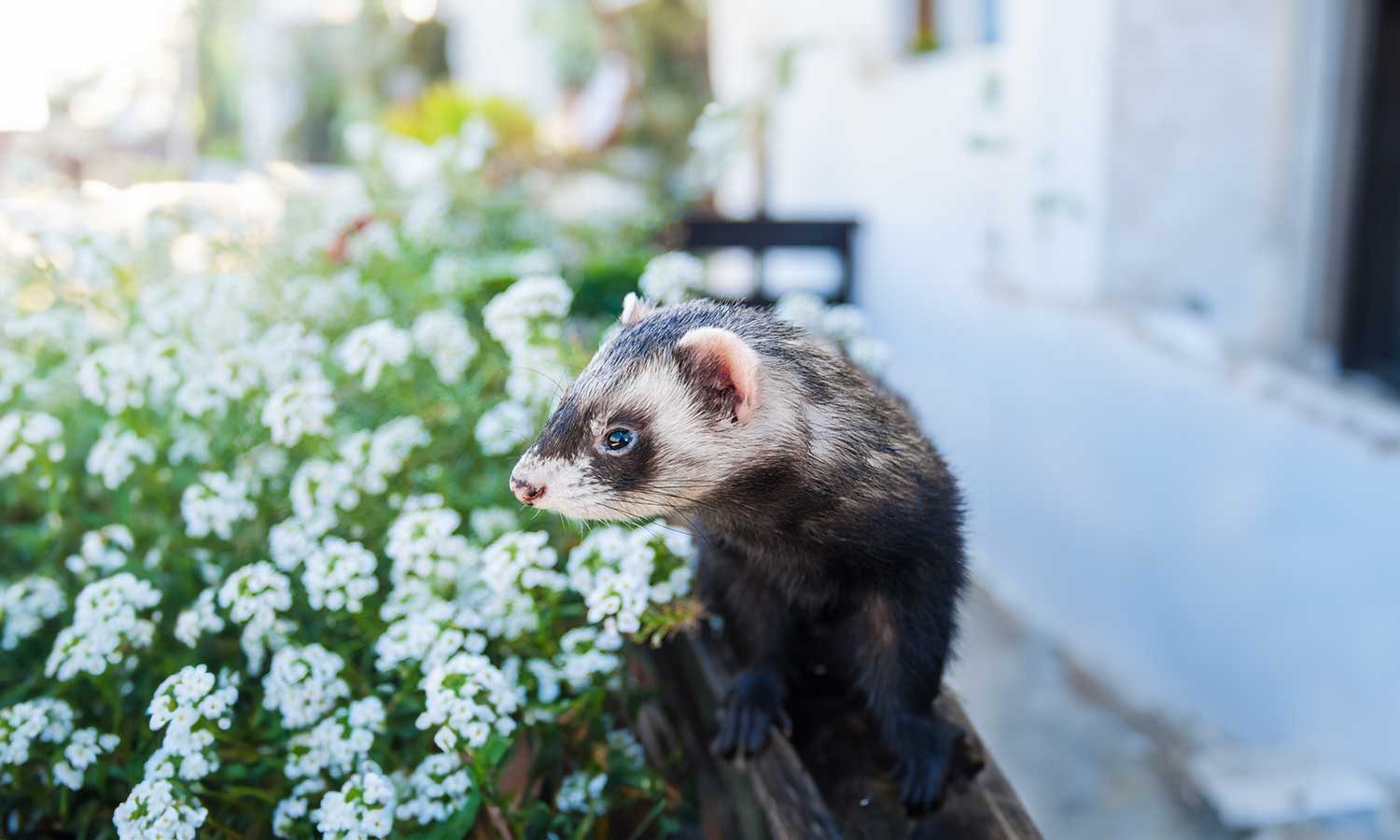The Big Responsibility of Small Exotic Mammal Care
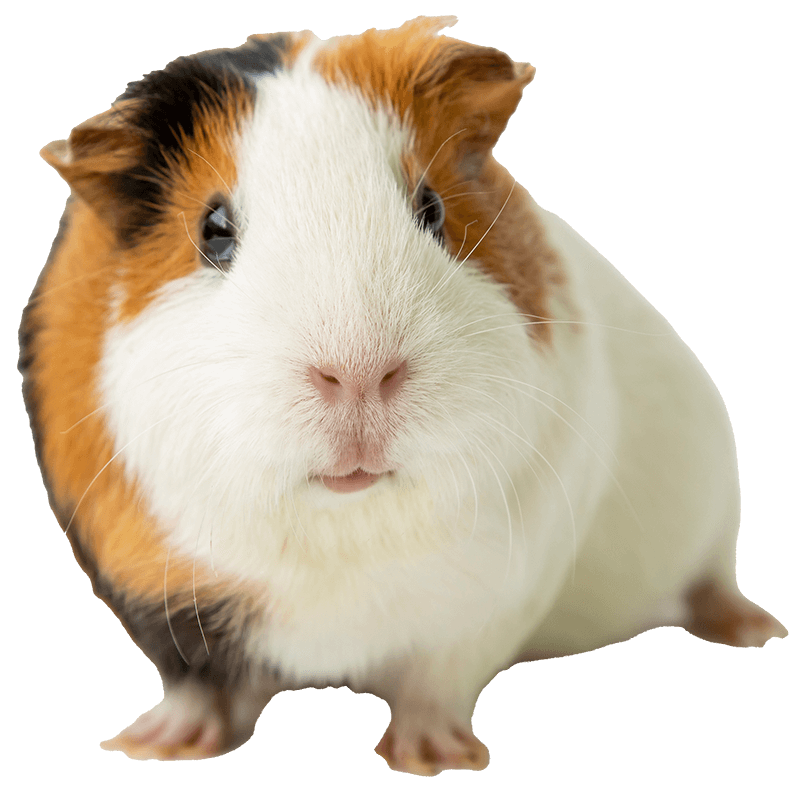
A smaller pet doesn’t mean less responsibility! Many small exotic mammals have very specific husbandry requirements. These small critters are great additions to your family, and make for very special companions—especially when given the proper care they need, of course! The small exotic mammals we see at our Grapevine hospital include a wide variety such as guinea pigs, hamsters, rats, sugar gliders, skunks, coatis, kinkajous, ferrets, hedgehogs, even new world primates, and more. Learn more about their unique care requirements so you can give them the best life with you.
Small Exotic Mammal Wellness Exams
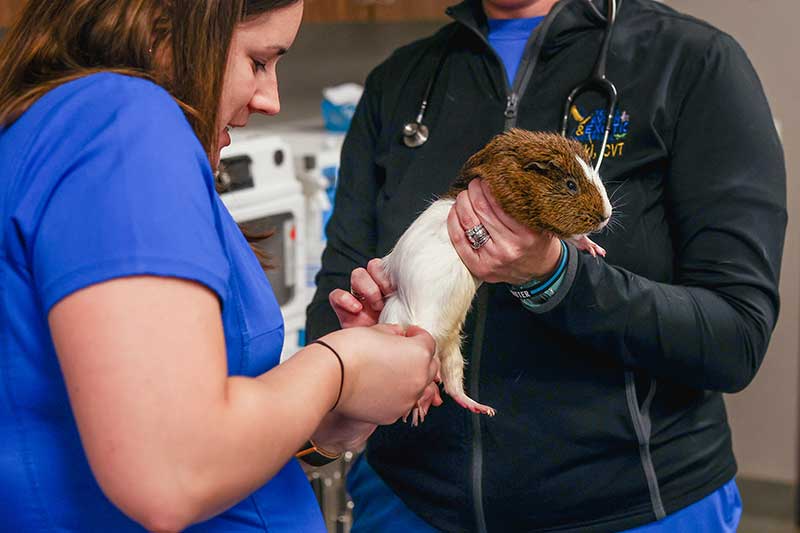
Just as with any pet, yearly wellness exams are highly recommended. Catching problems early helps your pet lead a healthier and happier life. Every species of small exotic mammal requires consistent veterinary care so we can evaluate their home environment, diet, and overall health for any signs of medical or behavioral problems. We’ll always start our exam with you, asking questions about their home life and if you’ve noticed any changes in their behavior.
Next, a general wellness exam will include:- Physical examination
- Weight measurement
- Fecal analysis
- Blood work
Tips on Husbandry
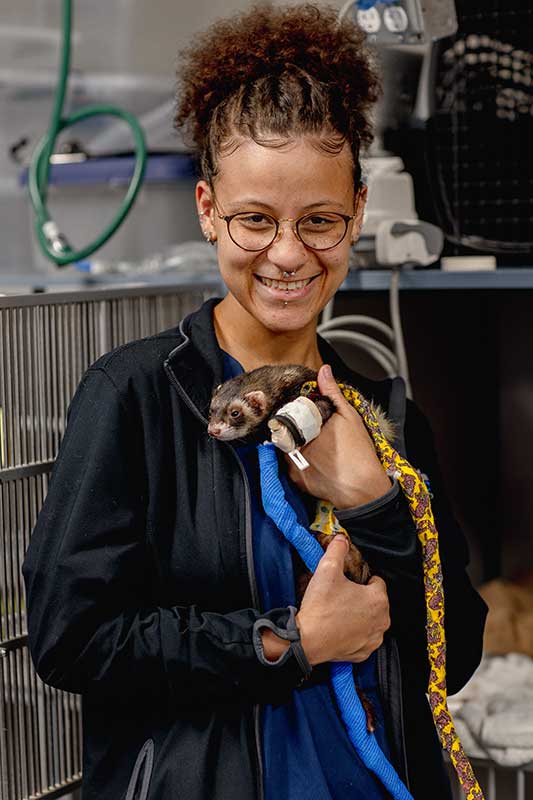
Small exotic mammals cover a wide range of species, each with their own unique needs. Make sure you have the resources to provide your pet with a stimulating and safe environment before you decide to add a new furry addition to your family. Consider the following:
- Environment: Do your research. Your animals will do best if they live in an environment that resembles their natural habitat. This is easier to do for some species over others! Some may require large cages with branches, perches, and maybe some tunnels to explore, while others can be kept in smaller cages as long as all their needs are met. Every environment should also encourage natural behavior such as digging and food gathering. They should also have plenty of mental stimulation, which includes different types of toys for playing and foraging. Providing mental enrichment can help prevent boredom which can lead to behavioral issues.
- Nutrition: It is important to do your research to ensure they are receiving a proper diet that meets their nutritional needs. For added stimulation, hide food to promote foraging and counter boredom. Our small exotic mammal veterinarians can discuss a detailed nutrition plan for your pet.
- Socialization: Again, it is important to research your pet’s natural life in the wild. Are they solitary hunters like a serval cat? Or are they social and live in communities like prairie dogs or sugar gliders? Knowing about your pet’s social needs is essential to a happy companion!
- Handling: Many small exotic mammals are bred in captivity and relatively accustomed to human touch. This is particularly true of rodents such as gerbils, guinea pigs, and rats. Yet, others are less used to handling and should be handled gently and with patience.
Common Health Problems in Small Exotic Mammals
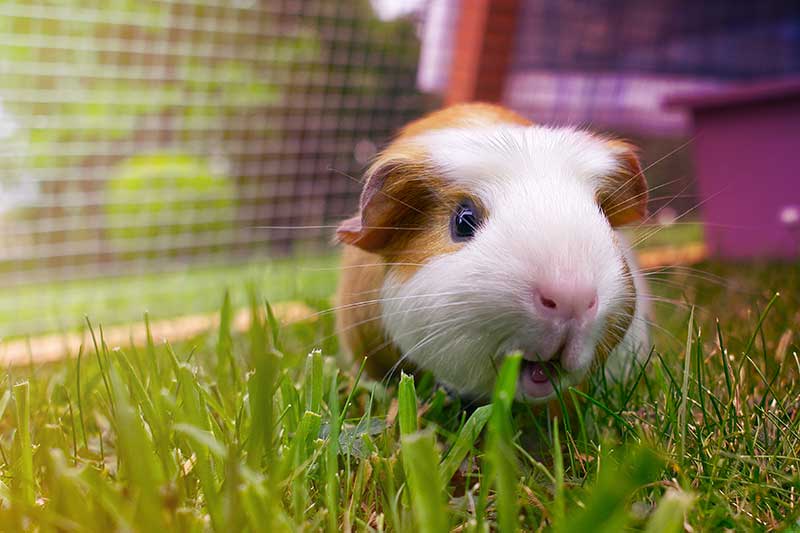
Health issues with small exotic mammals might mirror those in cats and dogs; however, caring for an exotic pet is never as straightforward as a domesticated traditional pet! Many of the disease processes are a direct result of inappropriate husbandry and nutrition. Recognizing early clinical signs and changes in behavior may help diagnose a medical condition before it progresses to severe illness. Fortunately, an appropriate environment and cage, as well as cleanliness and proper diet can help prevent many issues.
Common problems include:- Periodontal disease
- Overgrown teeth (in many rodent species)
- Internal and external parasites
- Infections (bacterial and fungal)
- Vitamin deficiency (from poor diets)
- Obesity (from over-exposure to high caloric treats such as fruits, seeds, and nuts or commercially processed treats)
Signs of Illness
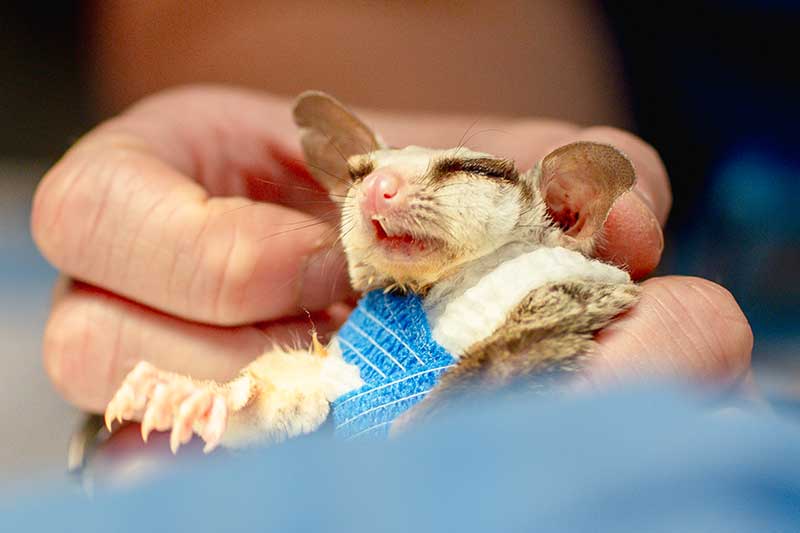
Illness can be hard to notice, as changes in behavior can be subtle. Yet, you know your pet best, so when they seem a bit out of sorts, don’t hesitate to bring them straight to us. Also, look out for the following indicators of illness:
- Weakness or lethargy
- Loss of appetite
- Diarrhea/vomiting
- Nasal/eye discharge
- Behavioral problems such as increased aggression
Bring your exotic furry friend to the experts! Contact us today to schedule an appointment. We look forward to welcoming you to Texas Avian & Exotic Hospital!

